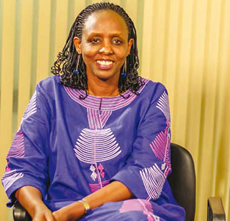5 Things that will Pull Farmers Out of Poverty
 The end of 2014 brought the conclusion of the African Union’s Year of Agriculture and Food Security.
The end of 2014 brought the conclusion of the African Union’s Year of Agriculture and Food Security.
However, most Africans work in some aspect of agriculture, and for them, every year is dedicated to agriculture and food security.
As farmers head out into their fields today, they are likely giving little thought to meetings underway in South Africa focused on energising the AU’s Comprehensive African Agriculture Development Programme (CAADP).
AU leaders have vowed to move quickly in 2015 to fulfil the promises enshrined in Malabo Declaration, which reaffirmed the commitment of AU member states to allot 10 per cent of national budgets to agriculture, double productivity on African farms and cut post-harvest losses by half.
The Alliance for a Green Revolution in Africa (AGRA) has been seeking out public and private sector partners committed to triggering a uniquely African green revolution; one that revolves around the smallholder farmers who produce the majority of what Africans eat.
Here are a few lessons learned in places, where many are now embracing the potential of agriculture to anchor a new era of sustainable and equitable economic growth.
1. Create conditions for smallholder farmers to adopt new inputs and practices by raising awareness.
The only way to sustainably and inclusively raise agricultural productivity is to ensure farmers are aware of the potential of new seeds, fertilisers and basic agricultural practices that can more than double their yields.
AGRA’s partners in national research systems have developed nearly 500 locally adapted crop varieties that are just as competitive as anywhere in the world.
Our partners and private equity firms, have helped launch 90 seed companies that collectively constitute the largest producer of certified seeds in sub-Saharan Africa, and 80 fertiliser companies that can help blend, distribute, and sell the produce to smallholder farmers through marketled solutions such as local agrodealerships.
2. Think outside the bank to consider new ways to deliver financing to farmers.
There are multiple opportunities to go beyond brick-and-mortar banks to help deliver financing that is still in short supply to smallholder farmers.
For example, Mpesa is reaching out to farmers with its popular mobile phone banking services. Microfinance institutio¬ns are partnering with commercial banks to provide new streams of affordable capital for agriculture ventures. And the MasterCard Foundation recently launched a campaign to expand financial services to rural Africa through Agra and other partners.
3. Develop structured and efficient grain markets that are accessible for smallholder farmers.
As farmers produce more, they increasingly need access to markets for their goods. Newly established warehouse receipt systems in Ghana and Kenya are providing safe and secure facilities to store grain while farmers negotiate with potential buyers.
National and regional commodity exchanges are needed to attract more buyers for this produce. One potential model is being developed by African Exchange Holdings (AFEX). It’s a new partnership working to combine warehouse storage options with commodity exchanges to serve smallholder farmers in the East African Community.
4. Support efforts to match smallholder farmers with large-scale buyers.
Over the last few years, farmers’ organisations in Ghana, Mali, Tanzania, Mozambique, Kenya, Rwanda, Burkina Faso and Malawi have established aggregation centres where growers can pool their harvest to meet the demands of large institutional buyers, like the World Food Programme.
In West Africa, a major rice miller and a large brewery have both seamlessly integrated smallholders into their network of suppliers.
5. Support women in agriculture
Most smallholder farmers and many new agribusiness leaders are women, and they have a significant role to play in Africa’s agriculture.
Priority actions include developing and promoting improved seeds that take into account women’s preferred characteristics such as taste and cooking time and targeting increased inclusion by women farmers in producer groups.
We need more support for groups that are putting women first in their development of solutions, and others like the African Enterprise Challenge Fund that are putting in place targeted finance for women in agribusiness.
Ms Kalibata is the President of the Alliance for the Green Revolution in Africa (AGRA) and former Rwandan Minister of Agriculture and Animal Resources.